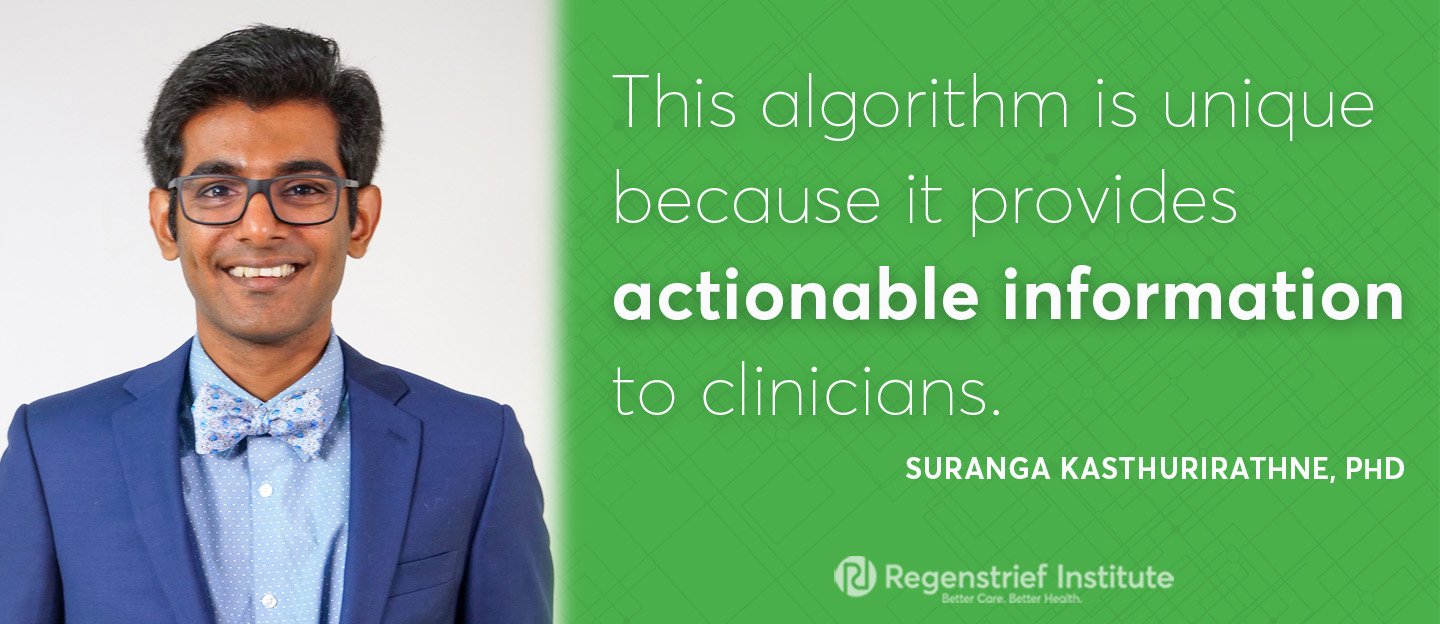Researchers at Regenstrief Institute and Indiana University created decision models capable of predicting which patients might need more treatment for their depression than what their primary care provider can offer. The algorithms were specifically designed to provide information the clinician can act on and fit into existing clinical workflows.
Depression is the most commonly occurring mental illness in the world. The World Health Organization estimates that it affects about 350 million people. Some people may be able to manage their depression on their own or with guidance from a primary care provider. However, others may have more severe depression that requires advanced care from mental health care providers.
Researchers created algorithms to identify those patients so that primary care doctors and providers can refer them to mental health specialists.
“Our goal was to build reproducible models that fit into clinical workflows,” said Suranga N. Kasthurirathne, PhD, first author of the paper and research scientist at Regenstrief Institute. “This algorithm is unique because it provides actionable information to clinicians, helping them to identify which patients may be more at risk for adverse events from depression.”
The algorithms combined a wide variety of behavioral and clinical information from the Indiana Network for Patient Care, a statewide health data repository, for patients at Eskenazi Health. Dr. Kasthurirathne and his team developed algorithms for the entire patient population, as well as several different high-risk groups.
“By creating models for different patient populations, we offer health system leaders the option of selecting the best screening approach for their needs,” said Dr. Kasthurirathne. “Perhaps they don’t have the computational or human resources to run models on every single patient. This gives them the option to screen select high-risk patients.” Dr. Kasthurirathne is also a visiting research assistant professor at the Indiana University Richard M. Fairbanks School of Public Health at IUPUI.
“Primary care doctors often have limited time, and identifying patients with more severe forms of depression can be challenging and time consuming. Our model helps them help their patients more efficiently and improve quality of care simultaneously,” said Shaun Grannis, M.D., M.S., co-author on the paper and director of the Clem McDonald Center for Biomedical Informatics at Regenstrief Institute. “Our approach is also well suited to leverage increasing health information technology adoption and interoperability to enable preventive care and improve access to wraparound health services.” Dr. Grannis is the Clem McDonald Professor of Biomedical Informatics at Indiana University School of Medicine.
Researchers are now working to integrate social determinants of health into these models.
This research was conducted as part of Dr. Kasthurirathne’s doctoral dissertation.
“Identification of Patients in Need of Advanced Care for Depression Using Data Extracted From a Statewide Health Information Exchange: A Machine Learning Approach,” was published on July 22 in the Journal of Medical Internet Research.
Additional co-authors include Paul G. Biondich, M.D., M.S., director of the Global Health Informatics Program at Regenstrief and associate professor at IU School of Medicine; Saptarshi Purkayastha, PhD, Indiana University School of Informatics and Computing; Joshua R. Vest, PhD, MPH, research scientist at Regenstrief and Center for Health Policy director, Fairbanks School of Public Health; and Josette F. Jones, PhD, IU School of Informatics and Computing. All of the authors were members of Dr. Kasthurirathne’s doctoral committee.









